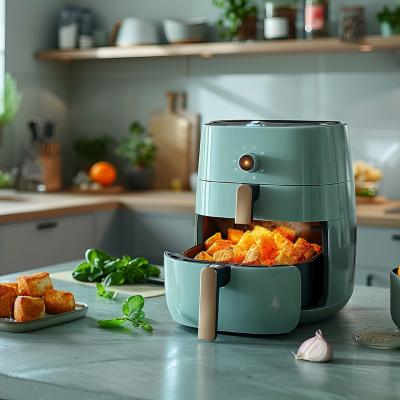
There are a lot of different oils that can be used for cooking, and it can be tough to decide which one to use. Some people might prefer to use peanut oil instead of vegetable oil, because they think it tastes better or is healthier.
Can You Use Peanut Oil Instead Of Vegetable Oil?
"You can definitely use peanut oil in place of vegetable oil in
most cases! Peanut oil is a popular choice for cooking because of its neutral taste and high smoke point, which
means it won’t burn as easily when heated at high temperatures."
In this blog post, we will explore the differences between peanut oil and vegetable oil, and help you decide which one is right for you!
Nutritional Value Of Peanut Oil
Peanut oil, sometimes known as groundnut oil or Arachis oil, is a vegetable oil produced from peanuts.
Peanut oil is a good source of monounsaturated fatty acids and polyunsaturated fats, which are healthy for your heart. It also contains vitamin E, an antioxidant that helps protect cells from damage caused by free radicals.
In addition to being high in fat content, peanut oil has a very low amount of saturated fat—making it a healthy choice for cooking.
LEARN MORE: Can You Use Peanut Oil For Baking?
Benefits Of Using Peanut Oil Compared To Other Vegetable Oils
The main benefit of using peanut oil is that it has a high smoke point. This means you can use peanut oil for frying without worrying about burning the food or having a bitter taste. It also helps prevent your cholesterol levels from rising when you eat foods cooked in this way.
In addition to being good for your heart health, this type of vegetable oil can be used in place of butter or margarine when baking cakes and cookies because it doesn’t have the same consistency as those products.
The health benefits of using peanut oil over other vegetable oils are due to its high content of unsaturated fats and vitamins E, A & K. It also contains omega-three fatty acids which have been shown to reduce cholesterol levels in the bloodstream by lowering triglycerides (a type of fat). The monounsaturated fats found in peanut oil can help prevent heart disease, stroke, and some cancers.
Peanut oil may aid in the treatment of insulin resistance. This implies that persons who have type 2 diabetes might benefit from increasing their consumption of peanut oil.
It is vital for the skin’s maintenance and health, blocking the effects of free radicals that cause wrinkles, blemishes, and other indications of age. Peanut oil contains a lot of vitamin E, which keeps your skin looking young and healthy as you age.
LEARN MORE: Can You Use Peanut Oil In Brownies?
Problems With Peanut Oil
Highly refined peanut oil can have traces of hexane, a petroleum byproduct that is used to enhance the separation of oil from the solids of peanuts. In rat studies, the EPA has identified hexane as a neurotoxin. Peanuts containing mold that produce toxic aflatoxin may contaminate the oil extracted from them.
Highly refined peanut oil is safe for people allergic to peanuts to consume, however first-press, organic oil should be avoided. Most refined peanut oils are guaranteed to be free of peanut allergens and have been found to be safe for peanut-allergic persons. However, because cold-pressed peanut oils do not remove the allergens, they might be extremely harmful to individuals who are allergic to peanuts.
Making The Right Choice
The most frequent type of peanut oil is bland or neutral in flavor, but if it’s prepared with roasted peanuts, it has a stronger peanut taste and aroma. It’s commonly used in American, Chinese, Indian, African, and Southeast Asian cuisines, both for normal cooking and, in the case of roasted oil, for taste enhancement.
Now that we know what peanut oil is. How do we make the right choice? Peanut oils are generally more expensive than other vegetable oils and some people are allergic to peanut oil.
When it comes to cooking, peanut oil is a healthy and versatile option that can be used instead of other vegetable oils. It has a high smoke point, which means you can use it for frying without having to worry about the food tasting bitter or burning. Peanut oil is also a good source of unsaturated fats.
But the health benefits of peanut oil are worth the extra cost and it can be used in place of vegetable oils for cooking, baking, and frying foods keeping in mind that one is not allergic.
LEARN MORE: Best Grapeseed Oils You Can Buy Online
Conclusion
There are a lot of different oils that can be used for cooking, and it can be tough to decide which one is right for you!
Peanut oil is a good choice. However, you should keep in mind that it has a strong taste and smell. It’s not as versatile as vegetable oil because it will impart its flavor into your food if used for cooking or baking.
If you’re looking to make healthier choices this year, then try replacing vegetable oils with peanut oil!



